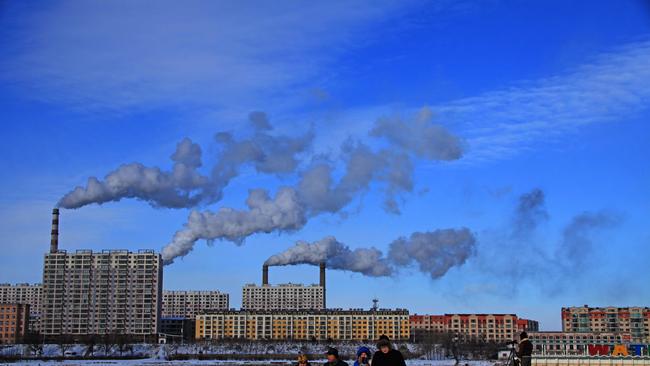Australia’s largest companies turning to carbon credits to meet climate goals: KPMG
Australia’s largest companies are turning to carbon credits to meet ambitious climate goals instead of just reducing emissions as the government prepares to mandate climate reporting.

Major businesses are increasingly turning to carbon credits instead of lowering emissions to meet lofty climate reduction goals.
Analysis by KPMG shows that 46 per cent of the largest 100 companies on the ASX have outlined plans to achieve their climate reduction targets by using carbon credits and lower emissions, up from 37 per cent last year.
The Status of Australian Sustainability Reporting Trends report found that the number of companies that plan to hit their target only by reducing emissions fell from 60 per cent last year to 38 per cent.
Carbon credits are a mechanism designed to reduce greenhouse gas emissions by creating a market in which companies can trade emissions permits and offsets with businesses that don’t need them.
KPMG partner in charge, climate change & sustainability, Adrian King said a good carbon reduction strategy could not only rely on offsets, adding that it was not a bad sign in the short term that many were turning to carbon credits.
“There are valid reasons for offsets for where things can be avoided and it’s what businesses should be using them for,” Mr King said.
“Credits have a role in the short term, but you can’t just buy your way out of lowering emissions. Many businesses are finding that it may take longer than they had expected to meet their targets so are turning to alternatives to stay on track.”
Rio Tinto recently acknowledged it was unlikely to hit its 2025 targets without the use of carbon credits given the lack of progress around green power for its energy-hungry aluminium smelters in NSW and Queensland.

A string of delays in regulatory approvals as well as problems in getting greening projects in place forced Boral on Friday to water down expectations for carbon reduction efforts out to the end of the decade.
Mr King said organisations were also more sophisticated in their climate strategies and had more detailed plans on how to reduce emissions than a year ago.
“Some companies are wanting to be very ambitious and still meet that target they’ve set by almost imposing a voluntary financial penalty on themselves by buying carbon credits,” he said.
The Clean Energy Regulator found corporate use of Australian Carbon Credit Units fell 6 per cent from the previous year, despite an increase in demand to offset emissions. Instead, companies were sourcing much cheaper carbon credits overseas with the CER reporting a 65 year-on-year increase.
It comes as KPMG said only half of ASX 100 firms were having their climate disclosures externally verified, which would have to change under the federal government’s climate-related financial disclosure that is scheduled to take effect for the largest businesses from next fiscal year.
The phased approach means the largest companies will not have to include scope 3 disclosures, involving the emissions from supply chains, until the second year of the new regime.
KPMG backed the phased adoption of mandatory climate financial disclosures in its last month, saying it would balance capacity building while ensuring that a sufficient level of emissions in Australia was covered.
Mr King said mandatory reporting by companies would create a level playing field in which investors and analysts would be able to accurately compare and contrast.
“There are plenty of good voluntary standards that ASX 100 companies are doing already, but mandating these obligations will make that consistent and easier to understand,” he said.
Australian Chamber of Commerce and Industry chief executive Andrew McKellar said mandatory disclosure along with reporting of Scope 3 emissions should only occur after an Australian standard for climate-related financial reporting had been fully developed.
“Business accepts the need for greater transparency of climate-related risks and opportunities, but the government’s timeline for the implementation of climate-related financial disclosure is very tight,” he said.







To join the conversation, please log in. Don't have an account? Register
Join the conversation, you are commenting as Logout